Artificial stone, as a creative and modern alternative to natural stones, opens up a world of beauty and diversity for you. With its unique advantages, this product is considered an ideal choice for designers and architects in various construction and interior and exterior decoration projects.
Unparalleled Advantages of Artificial Stone:
Unmatched Diversity: Artificial stone is produced in various designs, colors, and textures, allowing you to choose the best option according to your taste and needs.
High Strength and Durability: This product is highly resistant to different weather conditions, UV rays, abrasion, and impact, and has a long life.
Easy and Quick Installation: Artificial stone can be installed easily and quickly and does not require any special expertise or skills
What is the difference between stone and artificial stone?
Choosing between natural stone and artificial stone has always been a concern for designers, architects, and homeowners. Both types of stone have their own advantages and disadvantages, and the final choice depends on various factors such as the type of application, location of use, your taste, and budget.
Comparison of Natural Stone and Artificial Stone:
Appearance:
Natural Stone: It has a unique and natural appearance that is never repeated. Each natural stone has its own unique veins and patterns that give it an unparalleled beauty.
Artificial Stone: It is produced in various designs and colors and can have an appearance similar to natural stones. However, it has a more artificial and repetitive appearance.
Durability:
Natural Stone: It is resistant to various weather conditions, UV rays, abrasion, and impact. However, some natural stones, such as marble, are sensitive to acids and chemicals.
Artificial Stone: It is resistant to various weather conditions, UV rays, abrasion, and impact. It is also highly resistant to acids and chemicals.
Longevity:
Natural Stone: It has a long lifespan and can last for years without change. However, it requires more care and maintenance.
Artificial Stone: It has a long lifespan and can last for years without change. It requires less care and maintenance
How is artificial stone made?
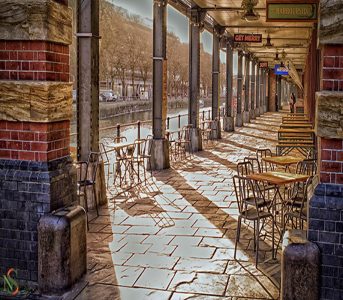
Cement: Cement is the main component of artificial stone, and its type significantly affects the final product’s quality and strength.
Sand: Sand acts as a filler in artificial stone, providing it with strength and hardness.
Additives: Various additives, such as pigments, plasticizers, water repellents, and fibers, are used to enhance the properties of artificial stone.
Mixing:
The raw materials are mixed thoroughly in specialized mixers to achieve a uniform blend.
The mixing time and technique are crucial for the quality and cohesiveness of artificial stone.
Molding:
The prepared mixture is poured into specialized molds available in various designs and sizes, offering unparalleled diversity to artificial stone.
Vibration:
The molds are vibrated to eliminate air bubbles from the mixture, increasing the density and strength of the artificial stone.
Curing:
The molds are placed in steam chambers to undergo the cement setting and hardening process.
Proper temperature and humidity are essential for the final product’s quality.
Cutting and Polishing:
After complete hardening, the artificial stone is removed from the mold.
It is then cut to the desired size and dimensions using specialized cutting and polishing machines, resulting in a smooth and shiny surface.
Quality Control:
Finally, the artificial stones are thoroughly inspected and controlled to ensure their quality and compliance with standards.
Interesting Facts about Artificial Stone Production:
The variety of designs and colors in artificial stone is unmatched due to the use of different molds and pigments.
This product is resistant to various weather conditions, UV rays, abrasion, and impact due to the use of additives.
Artificial stone is easier and faster to install than natural stone.
Artificial stone is more affordable and cost-effective compared to natural stone.
Choose artificial stone to bring beauty, variety, durability, and affordability to your home.
Is artificial stone expensive?
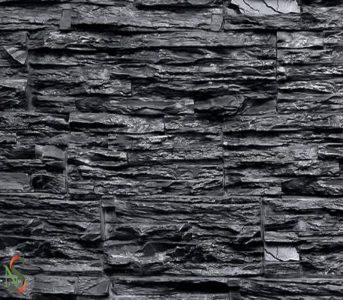
The cost of artificial stone depends on various factors such as the type of raw material, design and color, manufacturer brand, thickness, and dimensions.
Factors Affecting the Price of Artificial Stone:
Type of Raw Material: Artificial stone is produced with various raw materials such as cement, aggregates, resin, etc. The type and quality of raw materials directly affect the final price of the product.
Design and Color: Artificial stone is available in various designs and colors. More complex and unique designs and colors have higher prices.
Manufacturer Brand: Reputed and well-known brands in artificial stone production use higher quality raw materials and advanced technologies, which increases the price of their products.
Thickness: Artificial stone is produced in different thicknesses. Higher thicknesses have higher prices.
Dimensions: Artificial stone is available in various sizes. Larger dimensions have higher prices.
Comparison of Artificial Stone Price with Natural Stone:
Generally, the price of artificial stone is cheaper and more affordable than natural stones such as marble and granite. However, the price of some high-quality and unique types of artificial stone can be close to the price of natural stones.
Economic Benefits of Artificial Stone
Reasonable Price: The price of artificial stone is generally cheaper than natural stones.
Easy Installation: Artificial stone is easier and faster to install than natural stones and requires less expertise and skill.
Easy Maintenance: Artificial stone requires less maintenance than natural stones.
Longevity: Artificial stone has a long lifespan and can last for years without change
What are the disadvantages of artificial stones?
Artificial Appearance:
Although artificial stone is available in various designs and colors, it has an artificial and repetitive appearance and does not convey the natural feel of natural stones.
Limited Diversity:
The variety of designs and colors of artificial stone is more limited compared to the unparalleled diversity of natural stones.
Durability:
The durability of artificial stone against various weather conditions, UV rays, abrasion, and impact depends on the type of raw material and its production process. Some types of artificial stone, especially against acids and chemicals, have less resistance.
Installation:
Installing artificial stone requires expertise and skill, and if not done correctly, it may experience problems such as cracking and loosening over time.
Price:
The price of high-quality and unique artificial stone can be close to the price of natural stones.
Maintenance:
Maintenance of artificial stone is more difficult compared to natural stones.
Some types of artificial stone are produced from chemical and unnatural raw materials that can be harmful to human health and the environment.
Tips for Better Selection:
Consider the type of application, location of use, taste, and budget before choosing artificial stone.
Buy from reputable and well-known brands to ensure product quality.
Make sure of the product warranty and after-sales service before purchasing.
With an informed choice, bring the beauty and diversity of artificial stone to your home without ignoring its disadvantages.
Which granite is best natural or artificial?
Choosing between natural and artificial granite for various applications such as kitchen countertops, flooring, and wall coverings has always been a dilemma for designers, architects, and homeowners. Each type of stone has its own advantages and disadvantages, making the selection even more challenging. In this article, we will thoroughly examine both types of stone and assist you in making the best decision for your needs.
Natural Granite:
Pros:
Unique Beauty: Each slab of natural granite features its own unique pattern and color, granting it unparalleled beauty.
High Strength and Durability: Due to its high hardness, granite is highly resistant to scratches, abrasion, and impact, ensuring a long lifespan.
Heat Resistance: Granite is heat resistant and does not stain easily.
Easy Cleaning and Maintenance: The smooth and polished surface of granite can be cleaned effortlessly.
Cons:
High Cost: Natural granite is expensive due to its challenging extraction and processing.
Maintenance Requirements: Maintaining
How is artificial stone used?
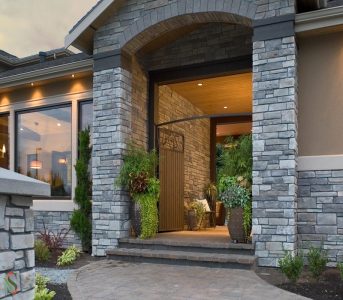
Cement: Cement is the main component of artificial stone, and its type significantly affects the final product’s quality and strength.
Sand: Sand acts as a filler in artificial stone, providing it with strength and hardness.
Additives: Various additives, such as pigments, plasticizers, water repellents, and fibers, are used to enhance the properties of artificial stone.
Mixing:
The raw materials are thoroughly mixed in specialized mixers to achieve a uniform blend.
The mixing time and technique are crucial for the quality and cohesiveness of artificial stone.
Molding:
The prepared mixture is poured into specialized molds available in various designs and sizes, offering unparalleled diversity to artificial stone.
Vibration:
The molds are vibrated to eliminate air bubbles from the mixture, increasing the density and strength of the artificial stone.
Curing:
The molds are placed in steam chambers to undergo the cement setting and hardening process.
Proper temperature and humidity are essential for the final product’s quality.
Cutting and Polishing:
After complete hardening, the artificial stone
What are the advantages of artificial stones over natural stones?
Artificial stones have emerged as a formidable competitor to natural stones in the world of decoration and architecture. But what makes this fascinating product stand out? In this article, we explore the astonishing advantages of artificial stones compared to natural stones.
Unparalleled Diversity:
Artificial stones are available in a wide variety of designs, colors, and textures, offering you unparalleled freedom of choice. From classic and traditional to modern and whimsical designs, a world of diversity awaits you.
Affordable Price:
The price of artificial stones is significantly cheaper than natural stones. This makes them an ideal choice for a wider range of people.
High Strength and Durability:
Artificial stones are manufactured using high-quality raw materials and advanced technologies, making them highly resistant to various weather conditions, UV rays, abrasion, and impact.
Easy Installation:
Installing artificial stones is easier and faster than natural stones. This helps save time and money.
Easy Cleaning and Maintenance:
The smooth and polished surface of artificial stones can be easily cleaned and requires less maintenance.
Repair ability:
In case of scratches or damage, artificial stones can be repaired and do not need to be replaced.
Environmental Friendliness:
Artificial stones are manufactured using recycled materials, contributing to environmental conservation.
Light Weight:
Artificial stones are considerably lighter than natural stones. This makes them easier to transport and install.
Flexibility:
Artificial stones are more flexible than natural stones and can be used on curved and uneven surfaces.
Conclusion:
Choosing between artificial and natural stones for various applications such as kitchen countertops, flooring, and wall coverings can be a daunting task. Each type of stone has its own advantages and disadvantages that need to be considered before making a final decision and you can buy from Nakhlesabz.net.


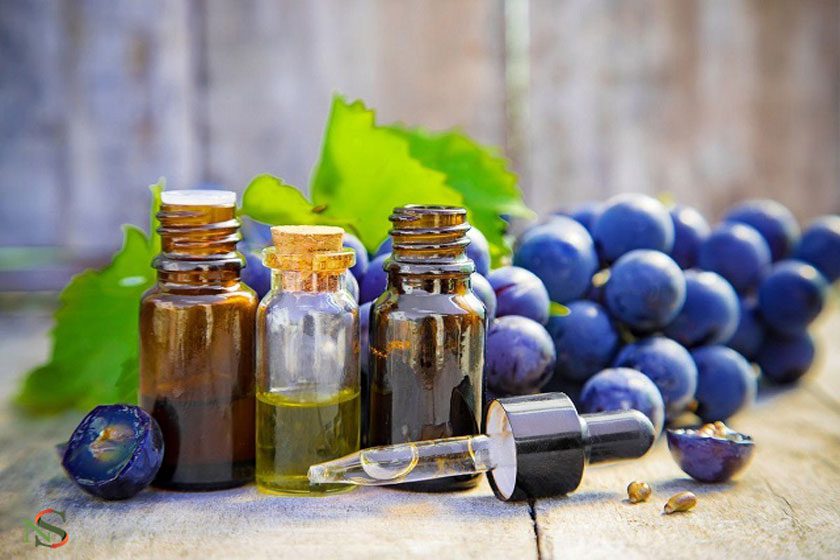


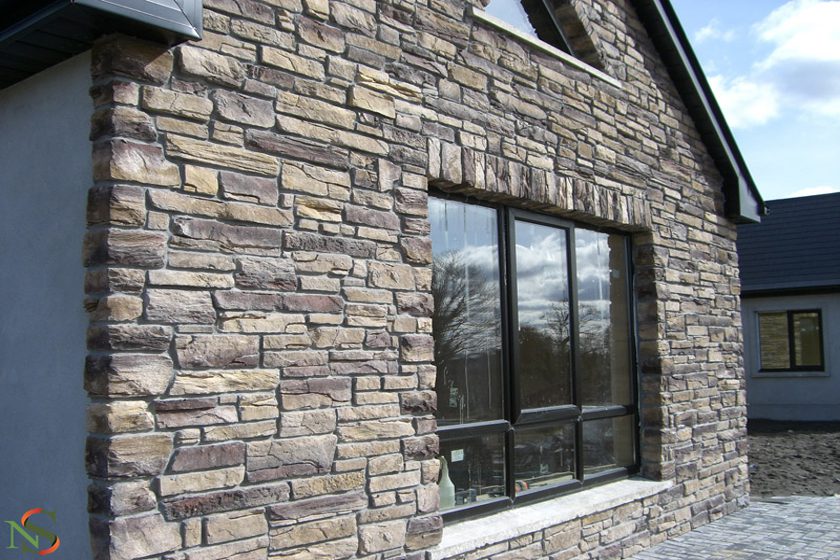






Latest comments